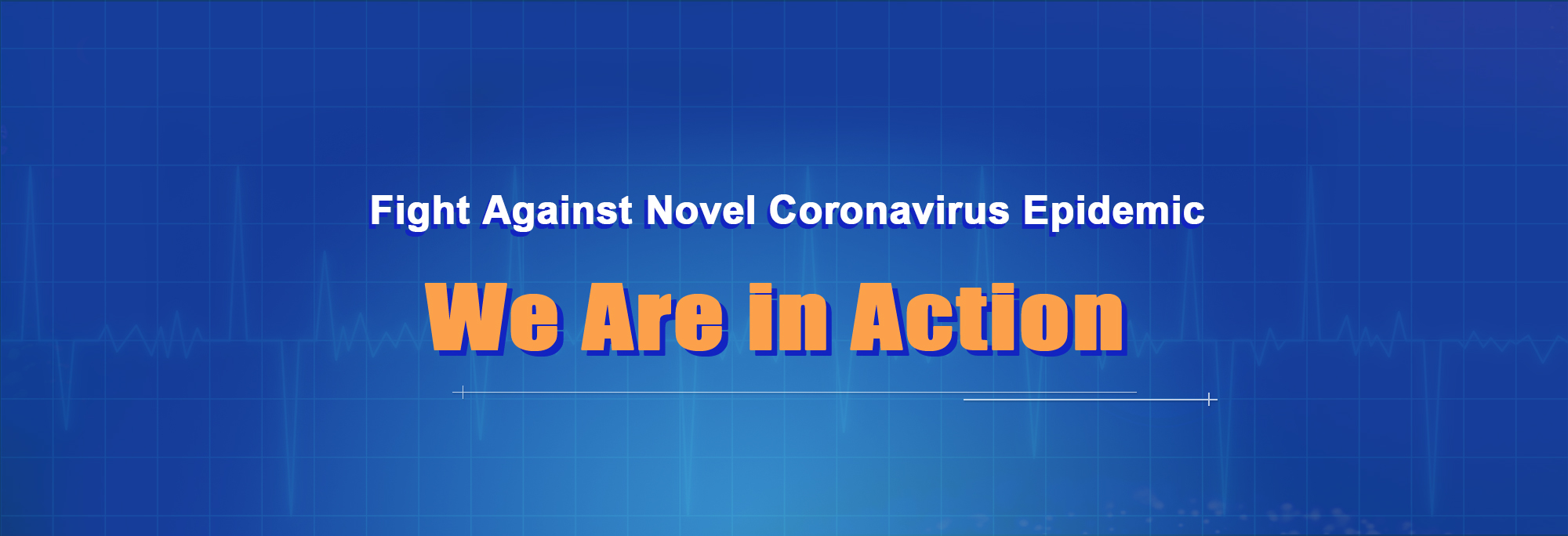
China Sets New Global Standard in Epidemic Control, Says Former WHO Chief
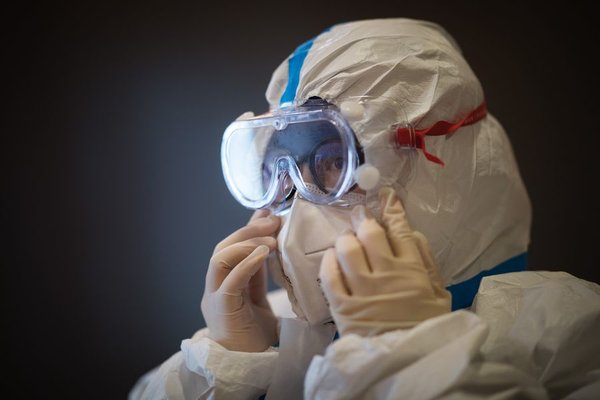
A member of the medical team of the Second Military Medical University puts on protective clothing at Hankou Hospital in Wuhan, central China's Hubei Province, Jan. 27, 2020. [Xinhua/Xiao Yijiu]
"China's performance received compliments from all over the world, which, as WHO's current director-general Tedros Adhanom Ghebreyesus said, has set a new standard for countries around the world in epidemic prevention and control," former WHO chief said.
HONG KONG, Feb. 1 (Xinhua) -- "This is a scientific judgment, a prudent and reasonable decision, with the aim to better control the epidemic and prevent it from spreading around the world," Margaret Chan, former director-general of the World Health Organization (WHO), commented after the organization announced the novel coronavirus outbreak a Public Health Emergency of International Concern (PHEIC).
"Human-to-human infections have been found in three countries outside China and none of the patients involved have visited China, prompting the WHO to make such a scientific judgement," Chan said in an interview with Xinhua on Friday.
Chan stressed the decision did not target China nor did it mean the WHO distrusted China's ability to handle the epidemic.
The decision was made to call on other countries to take measures to prevent and control the outbreak, she said.
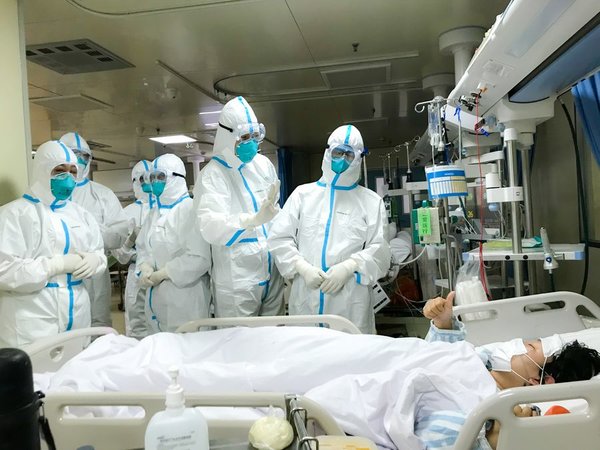
Members of the medical team of the Second Military Medical University receive praise from a patient at Hankou Hospital in Wuhan, central China's Hubei Province, Jan. 27, 2020. [Xinhua/Chen Jing]
"China's performance received compliments from all over the world, which, as WHO's current director-general Tedros Adhanom Ghebreyesus said, has set a new standard for countries around the world in epidemic prevention and control," Chan said.
In about a week's time, China finished sequencing the genes of the new virus and shared the information with the world, she noted.
Chan, an expert in dealing with public health emergencies, said a level of panic was understandable as the epidemic was caused by a novel coronavirus unfamiliar to most people.
She pointed out that it was important for all governments in different countries and regions to take scientific and accurate measures to control the epidemic.
Chan believes that the Hong Kong Special Administrative Region (HKSAR) government is apt at preventing and controlling infectious diseases thanks to its past experience. Hong Kong has experienced Severe Acute Respiratory Syndrome (SARS), bird flu and other severe infectious diseases.
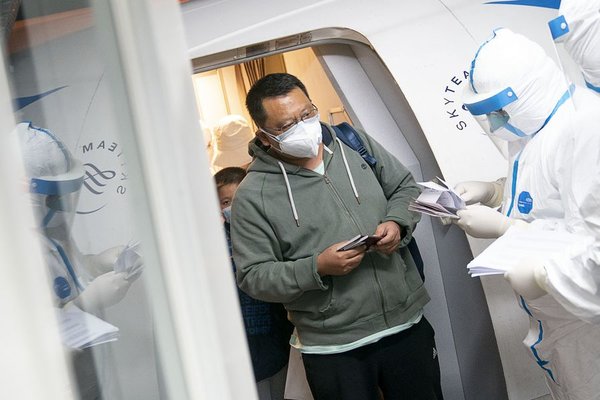
A Hubei resident arrives at Tianhe International Airport in Wuhan, central China's Hubei Province, Jan. 31, 2020. The first charter flight sent by the Chinese government to bring home stranded Hubei residents from overseas arrived in Wuhan Friday evening. [Xinhua/Xiong Qi]
A number of people proposed shutting down checkpoints between Hong Kong and the Chinese mainland along with other suggestions to contain the spread of the coronavirus.
"WHO has declared that all countries shall not impose travel or trade restrictions on China. This is also the spirit of international health regulations valued by the WHO," Chan said.
Australia, for instance, once adopted measures that prohibited entry and exit of people during a global flu pandemic, but the measures failed to prevent an outbreak in the country, she pointed out.
Chan acknowledged that it is still difficult to estimate when the current pneumonia epidemic will abate since it was caused by a new virus whose source and hosts have yet to be determined by scientists.
She stressed that effective implementation of existing prevention and control measures should be the top priority at this stage.
"The mainland has done what it should. China has set a new standard for other countries to prevent and control the epidemic, while no other country has the scale, speed, transparency and openness comparable to China," Chan said.
(Source: Xinhua)
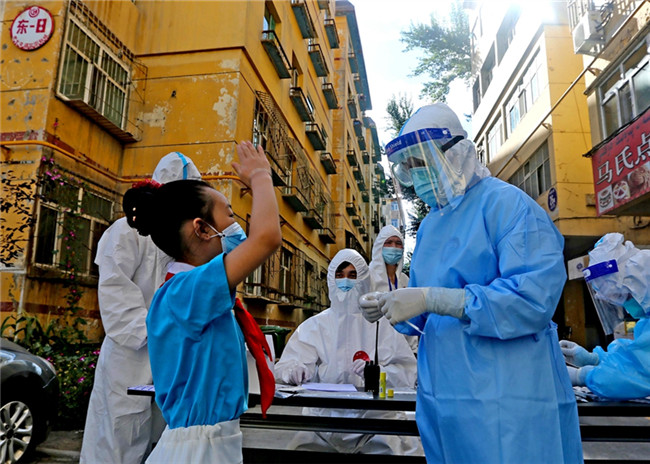 Women Medics in NW China's Xinjiang Contribute to COVID-19 Epidemic Containment
Women Medics in NW China's Xinjiang Contribute to COVID-19 Epidemic Containment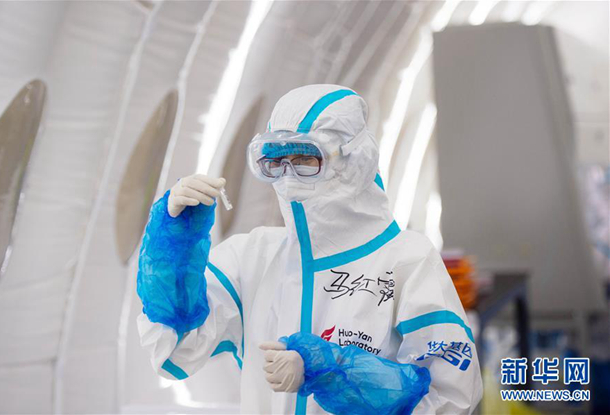 Women CPC Members on Front Line of Anti-COVID-19 Battle in Beijing
Women CPC Members on Front Line of Anti-COVID-19 Battle in Beijing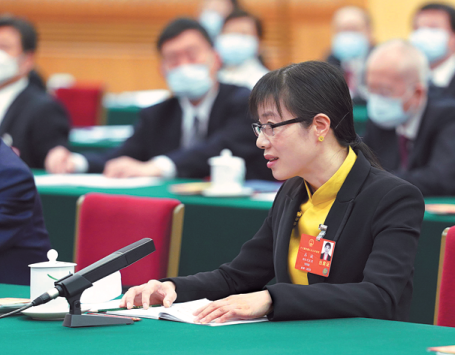 Deputy Recalls Role in COVID-19 Fight
Deputy Recalls Role in COVID-19 Fight- Woman Epidemiological Researchers Race Against the Clock on Front Line
 Pic Story of Nurse Who Aided COVID-19 Fight in Wuhan
Pic Story of Nurse Who Aided COVID-19 Fight in Wuhan Volunteer Provides Milk Tea, Back up Anti-Epidemic Workers in NE China
Volunteer Provides Milk Tea, Back up Anti-Epidemic Workers in NE China

 京公网安备 11010102004314号
京公网安备 11010102004314号